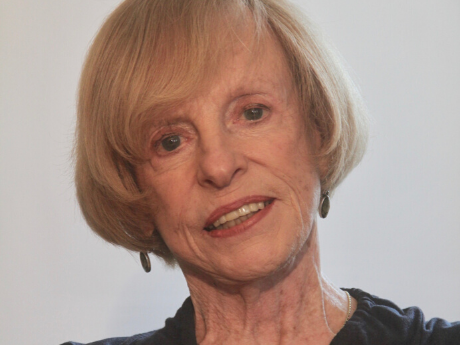Award Winners
William Carlos Williams Award - 2020
Martha Collins

Because What Else Could I Do
another beach, the last one we walked
together, hand in hand in the August sun,
and I walked on while you rested there, and now
it is winter and I am here with almost the last
of you in my hand, a tiny part of some parts
of you—your hand, your blue eye, shoulder,
mouth—and I try to gentle you in
to the sea, but a sudden wave rushes over
my feet and the wind catches this part
of some parts of you, and instead you are in
the air and more than before you are on
me: you have met me again, you will not let
me let you go, you are in the sea where you wanted
to be, but you are also in air and sand and earth
where your grandson will bury another small part—
and now I lick my finger and you are in me
From Because What Else Could I Do (University of Pittsburgh Press, 2019). All rights reserved.
Alice Fulton on Martha Collins' Because What Else Could I Do (University of Pittsburgh Press, 2019)
Throughout her distinguished career, Martha Collins has devised a poetics of justice and revelation. Her singular aesthetic reaches its apogee in this sequence that witnesses personal devastation and testifies to the terrifying forces of love and grief. William Carlos Williams asked poets to write “a new kind of measure,” “the poem as a field of action,” and Collins’s innovative work answers the challenge. A life-altering tragedy is enacted in a prosody built from silence and fractured language. Radical loss decimates lines that stumble and stutter in resonant spasms. The “story”— and its emotional backlash—levitate from the fissures of a flayed syntax.
Williams also advised poets to “listen to the language for the discoveries we hope to make.” But Collins must listen to discoveries she never hoped to make. Because what else could she do? The pathos of that desperate question transfigures these minimalist poems that testify to the excruciations of shame, the malevolence of scams, the sadness of delusional disorders, the helplessness of guilt and mourning. The linguistic surface is planed; the rhetoric free of pedantry or archness. Negative space vibrates with contained emotion, and it is especially moving to feel such intensity emerge from a purposefully limited palette. I could not stop reading.
